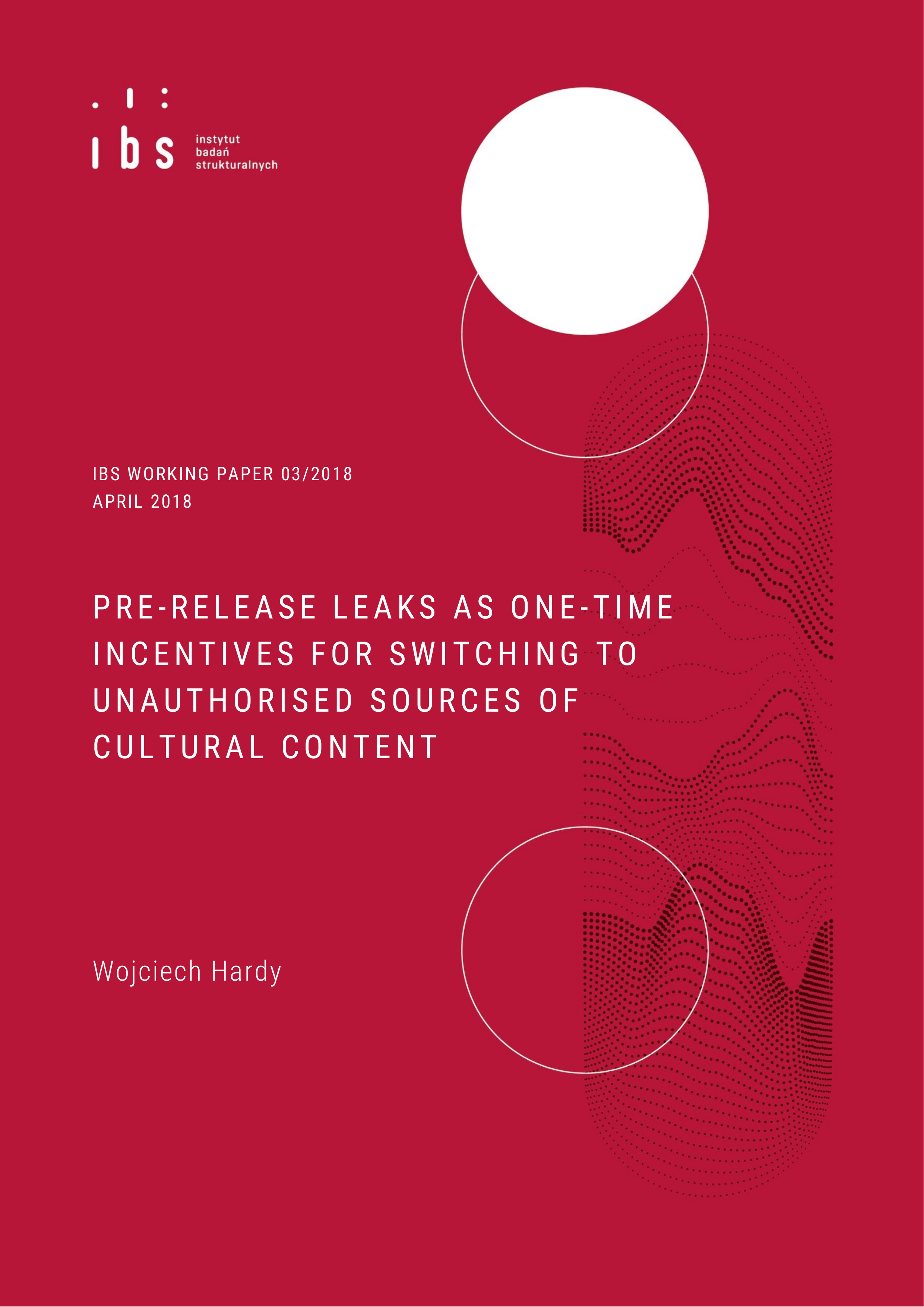Pre-release leaks of cultural content incentivise consumers to look for unauthorised sources. I find that such events may induce some television viewers to switch to unauthorised sources to gain access even to content that had not been leaked. To demonstrate that this is the case, I use a unique dataset on a sample of TV shows aired around the time of a pre-release leak of a very popular TV show (Game of Thrones). The results of a difference-in-differences analysis indicate that the leaked TV show lost viewership for both the leaked episodes and those that followed. Moreover, the event also had negative effects for other TV shows that may share an audience with the leaked show. Finally, my results for the shows with a shared audience are corroborated by evidence of an increase in Google searches for phrases including the show names and the words “watch online”, after the leak. I argue that the one-time incentive to use unauthorised sources caused some viewers to engage in unauthorised consumption even of shows not affected directly by the leak. These conclusions are consistent with the existence of one-time costs of switching channels of content acquisition.
I would like to thank Iga Magda of IBS, the participants of the DELAB 2017 and WIEM 2017 conferences, as well as of the Faculty of Economic Sciences, University of Warsaw, doctoral seminar and IBS internal seminar for their valuable comments. I would also like to thank the IMDb team for pointing me to the IMDb public use files. This study has been conducted as part of a research project financed by the National Science Centre (grant UMO-2016/21/N/HS4/01803). The usual disclaimers apply. All errors are mine.
Institute for Structural Research (IBS), Faculty of Economic Sciences and Digital Economy Lab (DELab), University of Warsaw


